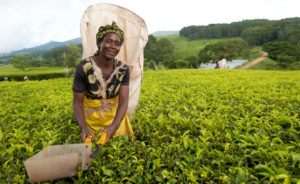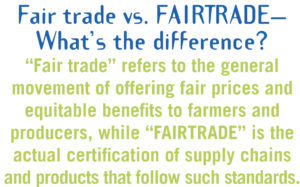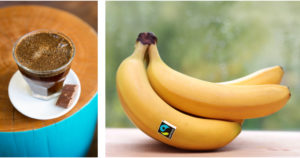 The writing is on the wall: the future of private brands lies not in me-too national brand equivalents or fast-follower products, but in innovation, differentiation and authenticity. At the same time, customers are increasingly seeking products that promote environmental sustainability and align with their own moral values and attitudes. That presents a clear opportunity for private brands to pursue—and one that both Daymon and the fair trade movement can play a key role in.
The writing is on the wall: the future of private brands lies not in me-too national brand equivalents or fast-follower products, but in innovation, differentiation and authenticity. At the same time, customers are increasingly seeking products that promote environmental sustainability and align with their own moral values and attitudes. That presents a clear opportunity for private brands to pursue—and one that both Daymon and the fair trade movement can play a key role in.

“For the retailer looking to tap into the sustainability trend, offering private brand items that are FAIRTRADE certified shows a commitment to social, environmental and worker standards that cover the full spectrum starting at the source and all the way through the supply chain,” says Kyle Freund of Fairtrade America, one of the primary certifying bodies in the United States.
“Most consumers have a general understanding of fair trade and are willing to make that intentional choice based on their own attitudes and moral positions,” agrees Carl Jorgensen, Director of Thought Leadership – Wellness for Daymon. “They may not know the details of what that particular certification involves, but they understand the principle is about fairness for the people who produce the food product—and that’s the real motivator. The social and ethical dimension of buying behavior is a real and growing trend.”
Several reports have shown that consumers are willing to pay more for products produced according to fair trade standards, as well. In fact, one such study from the University of Bonn in Germany showed consumers were willing to pay up to 30 percent more for products bearing the FAIRTRADE certified logo—and were likely to rate those products as tasting better. These findings can help assuage retailers’ concerns about the added costs of sourcing from fair trade supply chains.
 “Whether it’s fair trade or non-GMO or whatever the claim is, there are always incremental costs involved in achieving that,” admits Jorgensen. “But at Daymon, we can work with retailers on a case-by-case basis to make sure the final price on the shelf can be realistic and competitive, while also allowing them to maintain margin. Because most retailers have a higher margin on private brand products to begin with, oftentimes there is room there.”
“Whether it’s fair trade or non-GMO or whatever the claim is, there are always incremental costs involved in achieving that,” admits Jorgensen. “But at Daymon, we can work with retailers on a case-by-case basis to make sure the final price on the shelf can be realistic and competitive, while also allowing them to maintain margin. Because most retailers have a higher margin on private brand products to begin with, oftentimes there is room there.”
And finding that room can make a big difference in how a brand is perceived. According to Fairtrade America, a recent survey conducted by insights firm Globescan showed that 81 percent of consumers said they would view a brand they already buy more favorably if it carried a FAIRTRADE label. “Customers will happily give retailers credit for doing good things like this—and it’s a chance to burnish the halo of the brand,” agrees Jorgensen. “Retailers just need to be strategic and choiceful about it. Have a simple and clean message, and make it clear to your customers what you’re doing.”
To learn more about Daymon’s private brand sustainability and fair trade expertise, contact Carl Jorgensen, Director of Thought Leadership – Wellness, at cjorgensen@daymon.com.
Photos courtesy of Fairtrade America

